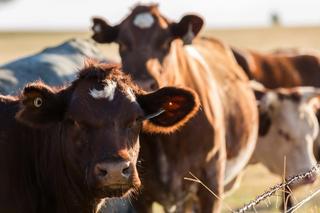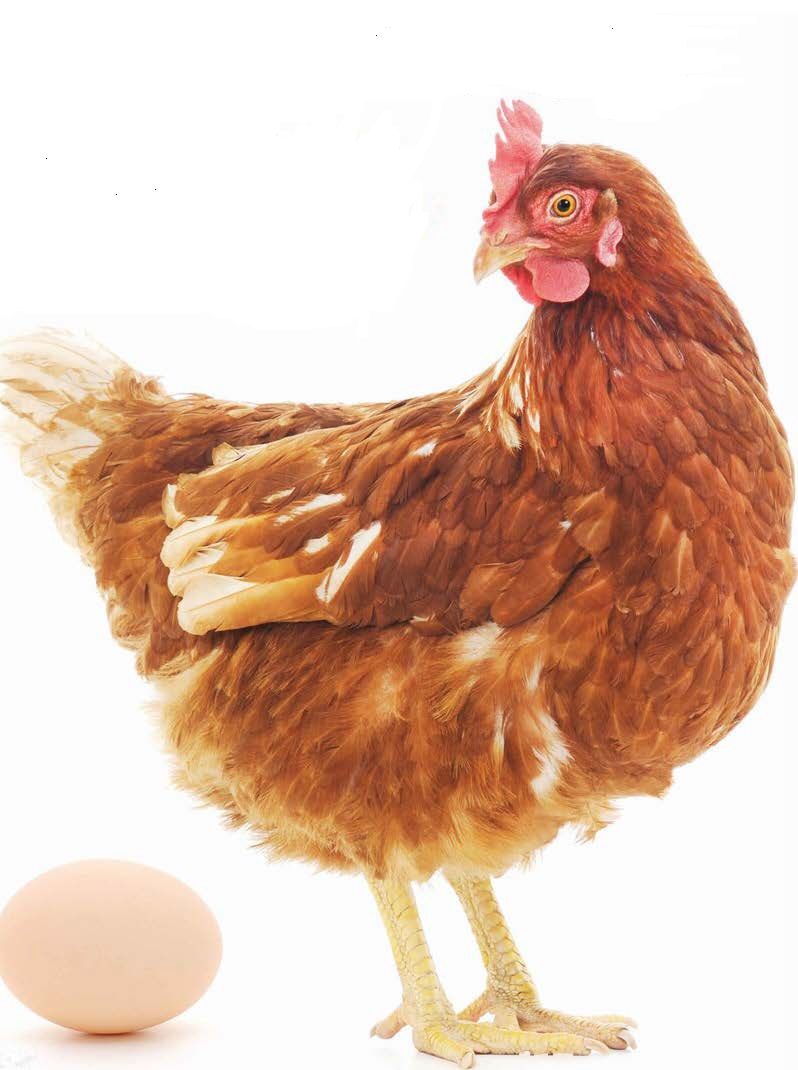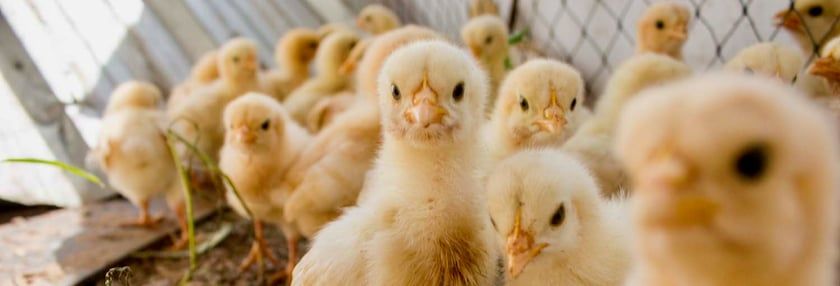Salmonella Prevention for Backyard Chickens
Essential Safety Tips to Protect Your Flock and Family


Backyard chickens can be a delightful addition to your household, providing fresh eggs and a taste of farm life. However, keeping chickens also comes with responsibilities, particularly regarding health and safety.
Salmonella is a common concern among poultry keepers. According to the Centers for Disease Control (CDC), backyard poultry, such as chickens and ducks, can carry salmonella germs even if they look healthy and clean.
These germs can easily spread to anything in the areas where the poultry live and roam. Chickens become infected with this disease from various sources, such as contaminated feed, water or their environment. With that in mind, you can get sick from touching your backyard poultry and then touching your mouth or food. Wash your hands!
Poultry expert Yuko Sato, a doctor of veterinary medicine with an MS and DACPV from Iowa State University, told AcreageLife that most salmonellas are considered normal bacteria for chickens and other poultry species.
“A few bad ones (e.g., salmonella pullorum and fowl typhoid) are host-adapted and will make chickens sick. There are several strains veterinarians worry about for food safety but most do not cause health issues in chickens,” she said.
Human Health Risks
The frequency of bacteria in eggs from backyard chickens is unpredictable by anyone. According to the CDC, as of May 16, 2024, 109 people were infected with one of the outbreak strains of salmonella from 29 states and 33 (40%) had been hospitalized.
These outbreaks were linked to backyard chicken, so having biosecurity in place is crucial, especially for some people with immune-compromised illnesses, seniors and young children. Fortunately, illnesses in a healthy person require eating a large number of bacteria.
Symptoms include nausea, fever, abdominal cramps and diarrhea. Most infections are mild and most people recover within a week or less without any treatment. A serious infection can spread from the intestines to the bloodstream and result in death among infants and the elderly.
Effective Biosecurity Measures
In the realm of backyard poultry keeping, where the health and well-being of your feathered friends take precedence, implementing robust biosecurity measures is paramount to prevent the threat of infections.
Understanding the key practices and protocols to safeguard you and your flock is crucial for maintaining a healthy environment.
Prevention Through Cleanliness
Ensuring the cleanliness of the coop and run is the cornerstone of prevention for backyard poultry owners. Rodents, pests and their feces are the primary culprits, making meticulous cleaning essential.
Mark Eggers, innovation & technology lead, Cargill’s animal nutrition & health, North America, shared that the cleanliness of the coop and run are the biggest issues preventing illnesses for backyard poultry owners.
“Keeping your chicken area clean is the most effective biosecurity measure that you can do. Cleaning up feed spills to keep rodents and chicken manure out of your coop and run are best management practices that every backyard chicken owner should have on their chore list,” he said.
Maintaining a clean and disinfected environment is also crucial for reducing contamination. Thoroughly cleaning feeders, waterers, coop surfaces and equipment should be done once a week. Removing bedding, bird droppings and organic matter before disinfecting is key to effective sanitation.
“First, remove and clean all feeders and waterers. Make sure to remove all of the bedding and bird droppings from the coop and run area. Next, clean the coop thoroughly, including scraping all surfaces, like the roosting bars, to ensure they are free of droppings. A typical disinfectant will not penetrate organic matter built up on surfaces. You must scrub everything with water and detergent,” Eggers said. When all surfaces are dry, spray a disinfectant and replace all the bedding, feeders and waterers.
In addition to cleanliness, fortifying your chickens' health through nutrition is vital in preventing salmonella outbreaks. Including probiotics, postbiotics and essential oils like oregano, rosemary, thyme and anise in their feed can bolster gut health and support a thriving microbiome, ultimately enhancing their immunity against diseases.
Introducing New Birds Safely
When introducing new birds to an existing flock, ensuring the health status of the incoming birds is the first step in minimizing disease transmission. Implementing a quarantine protocol is important to mitigate the risk of spreading diseases.
By quarantining new birds in a separate area for one month, allowing them to acclimate and receive any necessary treatment, you can safeguard the health of your current flock and prevent potential outbreaks.
When introducing new birds, or even if you take some of a flock to a fair or event, it's important to implement this quarantine system. “The ideal setup is to have a quarantine pen away from your main flock. Keep your new birds or those who traveled in this pen for three weeks. It provides enough time for any diseases to have incubated and for symptoms to develop. After that, allowing new birds to join your flock is safe,” Andrew Bolton, an instructor of youth poultry programs at the University of Arkansas, said.
Implementing early disease detection and quarantine strategies is a great time to check all your chickens for potential signs or symptoms. While many associate this disease with young birds, all ages are susceptible.
Symptoms may manifest as decreased activity, reduced egg production, thinning eggshells, diarrhea (bloody or watery stools), weight loss, swollen joints, dehydration and respiratory issues. Prompt identification and treatment are essential to prevent serious illness or fatalities, particularly in vulnerable or young birds.
By adhering to best practices in biosecurity, cleanliness and nutrition, and monitoring for symptoms, backyard chicken keepers can proactively mitigate the risks of salmonella infections, ensuring the health and vitality of their flock for years to come.
Remember that all the mild cases are rarely reported, so what can backyard chicken keepers do besides washing their hands?

Chicken Whisperer is part of the Catalyst Communications Network publication family.











